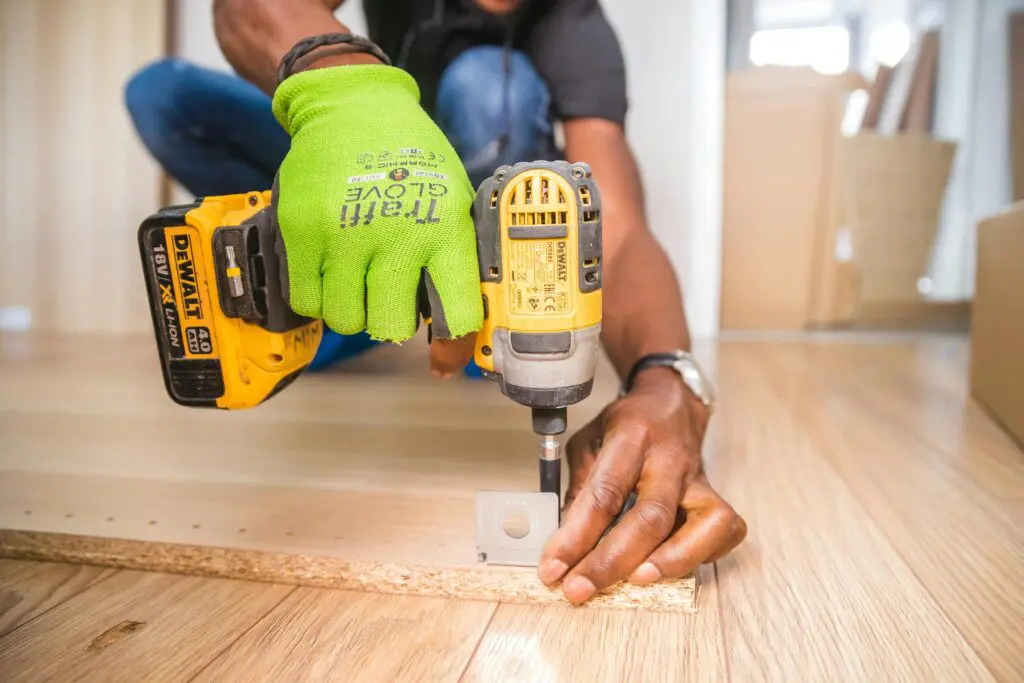Selling a house that needs major repairs can feel overwhelming, especially if you don’t have the time, money, or even the energy to take on big fixes. You can absolutely sell a property as-is and skip all those expensive renovations – there are buyers out there who actually want a project. This route can save you a lot of stress and often leads to a faster sale, particularly if you aim your efforts at investors or cash buyers.
If you’re not sure where to start, it’s worth knowing that pricing realistically, being upfront about the home’s condition, and understanding some basics about the process can make things a whole lot smoother.
First Steps: Identify Major Issues Early & Get Expert Advice
Getting a clear picture of your home’s condition and value is crucial when you’re selling a place that needs major work. Good info and solid advice can help you sidestep headaches and make smarter decisions.
Get A Professional Assessment Of Repairs Needed
Bringing in a licensed home inspector (or a contractor who specializes in this stuff) is a smart move. They’ll go over the property and give you a detailed rundown of what’s wrong – think big stuff like the roof, plumbing, foundation, electrical, you name it.
That report is gold. It tells you what buyers might find, and it sets the stage for realistic expectations about what needs fixing and what it might cost.
Go over that inspection report carefully, marking which repairs are urgent and which can wait. A simple table helps keep it all straight:
| Repair Needed | Estimated Cost | Urgency |
| Roof Replacement | $12,000 | High |
| Plumbing Upgrades | $5,000 | Moderate |
| Foundation Crack | $8,000 | High |
Having this kind of documentation can really help you negotiate when you list your house as-is.
Consult A Real Estate Agent Specializing In Fixer-Uppers
If there’s one time to work with a pro, it’s when your house needs a lot of work. Experienced real estate agents who know the fixer-upper market can price your place right and connect you with buyers who are actually looking for a challenge.
A good agent will help you figure out what needs to be disclosed and how to highlight the home’s potential, not just its flaws. They might even suggest a few cheap touch-ups to boost curb appeal or help you strategize how to market the place as-is.
Definitely look for someone who’s helped other sellers in your shoes. Their network could mean more cash offers and fewer headaches with contingencies.
Selling Home As-Is Vs. Minimal, Strategic Repairs
Should you sell the house as-is or do minor repairs? It comes down to your home’s condition, the local market, and what you care about most – speed, money, or just being done with it.
Understanding What Selling Your House As-Is Means
Listing a property “as-is” means you’re not fixing anything before the sale. Buyers know up front they’re taking it on, warts and all. This style of sale usually attracts investors, flippers, or folks who genuinely want a project.
You still have to disclose what you know about the home’s problems – state laws are pretty strict about that. Full disclosure keeps things honest and avoids drama later. Yes, prospective buyers will probably ask for a lower price, but the process is usually faster since buyers know what they’re getting into.
When To Strongly Consider Selling As-Is
Selling as-is makes a lot of sense when repair costs are just too expensive or when you need to sell quickly – maybe because of an inheritance, divorce, money troubles, or a sudden move. If you can’t or won’t spend on repairs, this is often the practical route.
Houses that won’t qualify for a regular mortgage – think big structural issues or busted systems – tend to appeal to cash buyers and real estate investors. If your market has a lot of investor activity or if you just can’t swing the upfront costs, selling as-is might be the best call.
What Not To Fix (And What Minor Fixes Might Be Strategic)
Some fixes just aren’t worth it, especially the big-ticket stuff like whole new roofs, foundation work, or major plumbing. Most as-is buyers expect to deal with those themselves.
But don’t ignore the easy wins. Simple tasks to consider:
- Haul out trash and clutter
- Mow the lawn or trim bushes
- Swap out dead light bulbs
- Touch up glaring paint problems
- Tighten up loose doorknobs or cabinet pulls
These tiny jobs can make a better first impression without costing you much.
Valuation & Pricing Your Property That Needs Repairs
Pricing a fixer-upper is a different ballgame. The home’s condition, local demand, and what buyers expect all play into it.
How To Value A Fixer Upper House
Start by figuring out what your house would be worth if it were in great shape. Look up recent sales of similar, renovated homes nearby.
Then, subtract the cost of repairs (get a few contractor quotes for the big stuff). Don’t forget to factor in hidden problems that might pop up.
A real estate agent who knows distressed properties can help fine-tune these numbers. Some sellers even ask local investors for offers to get a feel for the market.
If your house needs a ton of work and significant repairs, expect that most offers will come from cash home buyers or investors, and they’ll want a good deal to cover their risk.
Setting A Realistic Price
Price too high, and your house might sit for ages. Look at what similar homes with issues have actually sold for – not just what they’re listed at.
If you’re in a hot market, you might get multiple cash offers from more buyers even if the place needs extensive repairs. In slower areas, you’ll need to leave some room for buyers to cover repairs and make a profit.
Be upfront in your listing about the big flaws – that helps set expectations and justifies your price.
If you’re not sure, start with a competitive price based on your calculations and be ready to adjust fast if no one bites. Sometimes, a quick price drop can bring new interest from investors.
Marketing And Legalities: Attracting The Right Buyer
Major fixer-uppers attract a different crowd than move-in-ready homes. Getting the legal stuff right and focusing your marketing can help you get the best outcome and avoid drama.
Transparency Is Paramount: Disclose Known Issues
Most states require you to disclose what you know about the property’s problems – think structural damage, leaks, mold, electrical issues, and so on. Skipping this step is risky; it can lead to lawsuits or buyers backing out.
Having inspection reports, repair bids, and documentation of any recent fixes helps build trust. Be open in your listing and with buyers about the home’s condition. It protects you from accusations of misrepresentation and can make negotiations smoother.
Serious buyers appreciate honesty, especially if they’re ready for a project.
Marketing Your Fixer-Upper To The Right Audience
Traditional buyers usually aren’t interested in homes that need a lot of work, so the pool of potential buyers is smaller – mostly investors, flippers, or people hoping to get into a good neighborhood for less. Your marketing should focus on the home’s potential, unique features, and a price point that makes sense for this audience. Investors will want to see that the numbers work (the after-repair value has to beat the total cost) and are often cash buyers looking for a quick close.
Good real estate photos matter – even if they show the rough spots, at least buyers know what they’re getting. Use phrases like “investment opportunity,” “ideal for renovation,” or “fixer-upper with potential” in your listing, and consider focusing your efforts on investment groups, cash buyer lists, and websites that cater to renovation specialists.
Negotiating With Buyers
Negotiations usually come down to price, closing speed, and who pays closing costs. Investors may ask for a lower price if they find new problems during their inspection.
Expect buyers to do their homework – they’ll probably bring in their own inspector or contractor. Being open to a quick close or flexible on costs can help, but know your bottom line.
If you get multiple offers, don’t be afraid to let buyers know you’re still showing the property. That can help keep the negotiations in your favor.
Alternative Selling Options Beyond The Traditional Market
Sometimes, the usual way just isn’t going to work. Here are a few other approaches that can get your house sold quickly, even if you have to take a bit less.
Selling To Cash Home Buyers (iBuyers)
Cash home buyers (including iBuyers) buy houses as-is. No repairs, no staging, and usually a much faster close – sometimes in just a few days.
iBuyers use algorithms to make cash offers based on your home’s condition. If you need to move fast or can’t deal with the hassle of showings, this can be a lifesaver. Just keep in mind, some iBuyers might not touch homes with major structural issues, so local investors may be your best bet if your place is in rough shape.
Always compare offers and check for hidden fees. You might get less than market value, but the speed and convenience can be worth it.
Targeting Investors Or Developers Directly
Selling straight to investors or developers is all about finding buyers who see past the problems and focus on the lot, location, or potential.
List your place as a “fixer-upper” or “investment opportunity” and reach out through investor groups, online platforms, or even local builders. Investors want a deal, but they’ll usually close fast and won’t nitpick about repairs.
This works best in areas where renovations or tear-downs are common.
Seller Financing
With seller financing, you act as the lender – offering the buyer a payment plan instead of making them get a traditional mortgage. This appeals to buyers who can’t get a loan, especially if your house wouldn’t qualify anyway.
Usually, there’s a down payment, regular installments, and an interest rate. You keep a lien on the property until they pay off the balance. Seller financing can bring in more buyers and maybe a higher price, but there’s always the risk the buyer could default.


